
A compilation of seventeen tracks featuring artists such as Rene Lussier, Jean Derome, Pierre Tanguay, Robert Marcel Lepage, Andre Duchesne, Joane Hetu, &tc.
Out of Stock
Quantity in Basket: None
Log In to use our Wish List
Shipping Weight: 5.00 units
Sample The Album:
Robert Marcel Lepage
Jean Derome
The Dangerous Zhoms
Andre Duchesne
Rene Lussier
Pierre Cartier
Diane Labrosse
Castor & Company
La vie qui bat
L’Orkestre des pas perdus
Click an artist name above to see in-stock items for that artist.
UPC: 771028104529
Label: Ambiances Magnetiques
Catalog ID: AM_045
Squidco Product Code: 525
Format: CD
Condition: New
Released: 1997
Country: Canada
Packaging: Digipack
"Hourra pour la bastringue is a compilation of seventeen choice cuts featuring, among others, Rene Lussier, Jean Derome, Pierre Tanguay, Robert Marcel Lepage, Andre Duchesne, Joane Hetu and Diane Labrosse."-Ambiances Magnetique
Artist Biographies
• Show Bio for Robert Marcel Lepage "Robert Marcel Lepage (born 5 July 1951) is a Canadian musician and film score composer. Born in Montreal, Lepage trained in music at the age of 20, and learned to play the clarinet and saxophone. He performed with René Lussier and Pierre Hébert during the 1980s and 1990s. He went on to write the scores for 150 films. He was nominated for the Genie Award for Best Score and the Jutra Award for Best Music for the 2008 film The Necessities of Life. Marc-André Lussier of La Presse positively reviewed Lepage's score for Iqaluit (2016) as "lyrical". In his personal life, he has three children, Félix; Étienne Lepage (fr), a playwright; and Florence, an artist." ^ Hide Bio for Robert Marcel Lepage • Show Bio for Jean Derome "Jean Derome. Born Montréal, Québec, 1955. esidence: Montréal, Québec. Composer, Performer (saxophones (alto, baritone, soprano), flutes (flute, bass flute, piccolo, alto flute, recorders), keyboards, small wind instruments (ocarinas, jew's harp, game calls, toys...), percussion, invented instruments, voice) One of the most active and eclectic musicians on the Canadian creative music scene, Jean Derome has managed to earn the recognition of a larger public, a rare feat in that field. Thanks to his large-scale musique actuelle projects, his compositions, his work as an improviser, his jazz groups and his music for the screen and the stage, Derome ranks as a major creative force, in Québec and abroad. He is experienced and innovative on both saxophone and flute, and his unique writing style cannot be mistaken for anyone else's. Sensitive and powerful, his music often features a funny strike that makes its complex nature more inviting. Ever since Nébu (one of Québec's first avant-garde jazz groups) in the early '70s, Derome has been consistently renewing and diversifying his approach of composition. He impressed audience and critics first with the flute, then with the saxophone, as a lead character in the musique actuelle underground. He took part to the various artists' collectives looking for new ways to express themselves freely, without esthetic or social constraints, including the Ensemble de musique improvisée de Montréal. Later, in the early '80s, he co-founded Ambiances Magnétiques, a collective and record label that raised his profile at home and introduced his name to the outside world. Among his numerous projects, let us mention the duos Les Granules, Nous perçons les oreilles and Plinc! Plonc!, the dynamic group Jean Derome et les Dangereux Zhoms, and the large-scale projects Confitures de gagaku, Je me souviens - Hommage à Georges Perec and Canot-camping. Most of these projects are based on a unique form of synergy between composition, structured improvisation and genuine creative madness, all this articulated with unmatched playfulness. In 1992, Derome became the second artist to be presented with the Freddie Stone Award (bassist Lisle Ellis was the first). Besides improvising on a regular basis with Ambiances Magnétiques' members and appearing in their projects, Derome has also shared the stage with several musicians of international stature, among others Fred Frith, Lars Hollmer, Louis Sclavis and Han Bennink. He performs regularly all over Canada, in the US and in Europe. He received a Prix Opus in 2001 for his exposure abroad. Lately, jazz circles have been praising his undisputable qualities as a jazzman, thanks to the Thelonious Monk tribute project Évidence, the Normand Guilbeault Ensemble (whose Mingus Erectus CD is devoted to Charles Mingus' music), and the much-lauded Derome Guilbeault Tanguay Trio. Although Jean Derome writes tirelessly for his own projects, he is much in demand in the fields of film, theatre and dance. A short list of this side of his work would have to include his numerous scores for the National Film Board of Canada (NFB), especially for films by John Walker, Jacques Leduc, Fernand Bélanger and animated films by Pierre Hébert, Michèle Cournoyer and Jean Detheux; his incidental music for Théâtre UBU, Théâtre de Quat'Sous and Théâtre du Nouveau Monde; not forgetting his work with several top choreographers, including Louise Bédard, Andrew de Lotbinière Harwood, Daniel Soulières and Ginette Laurin. Other music ensembles have commissioned works from him, including Tuyo, Bradyworks, the Hard Rubber Orchestra from Vancouver and Fanfare Pourpour. Incidentally, Derome is the musical director of the latter. Over thirty years of music and 70 record credits later, Jean Derome still has sleeves bursting with tricks." ^ Hide Bio for Jean Derome • Show Bio for Andre Duchesne "André Duchesne (born 1949) is a Canadian experimental music guitarist and composer. He was a co-founder of Ambiances Magnétiques, a Canadian musical collective and record label, and formed several experimental music bands, including Conventum, Les 4 Guitaristes de l'Apocalypso-Bar and Locomotive. Duchesne has also released five solo albums.Biography André Duchesne was born in Montreal, Quebec in 1949. As a teenager he learnt acoustic guitar, but was not satisfied with the popular rock music being played at the time. In the mid-1970s he formed an avant-garde folk-rock group called Conventum with René Lussier, Jean Derome, Jean-Pierre Bouchard, Jacques Laurin, Bernard Cormier and poet Alain-Arthur Painchaud. Conventum was described by AllMusic as a mixture of "Quebec's folk roots with absurd poetry and progressive arrangements". They released two albums, À l'Affût d'un Complot in 1977 and Le Bureau Central des Utopies in 1979. In 1983 Duchesne, Lussier, Derome and Robert M. Lepage formed Ambiances Magnétiques, a musical collective and artist-run record label specialising in avant-garde music. Duchesne released his first solo album, Le Temps des Bombes on the new label in 1984. Then he began writing contrapuntal compositions for a guitar quartet, and formed Les 4 Guitaristes de l'Apocalypso-Bar (The 4 Guitarists of the Apocalypso-Bar) with Lussier, Bouchard and Roger Boudreault to perform the pieces. Les 4 Guitaristes de l'Apocalypso-Bar was a concept band that Duchesne said was from post-apocalypse Canada "inspired by the ghost of Jimi Hendrix". They premiered at the 4th Festival International de Musique Actuelle de Victoriaville (FIMAV) at Victoriaville, Quebec in October 1986, and continued until 1989, touring Canada, the United States and Europe. They also released two albums in 1987 and 1989. After the success of Les 4 Guitaristes de l'Apocalypso-Bar, Duchesne returned to FIMAV in 1989 to premier "his most ambitious work ever", L' Ou 'L, a composition that explored different styles of chamber music. In 1991, he formed Locomotive with Claude Fradette and Rémi Leclerc, which also performed at FIMAV in 1991. Locomotive recorded an album of the same name in 1992, which AllMusic called "the pinnacle of André Duchesne's discography". During the mid- to late-1990s, Duchesne formed several rock bands, but they never recorded. In 1999 he released Réflexions, an album of classical guitar solos, and in 2001, Polaroïde, a free improvisation session for guitar, viola and percussion. Duchesne returned to FIMAV for its 21st edition in 2004 to premier Cordes à danser, a new project of his featuring a string quartet and a "power trio" of guitar, bass and drums." ^ Hide Bio for Andre Duchesne • Show Bio for Rene Lussier "René Lussier (born April 15, 1957) is a musician based in Quebec, Canada. He is a composer, guitarist, bass guitarist, percussionist, bass clarinetist, and singer. Lussier has collaborated with such figures as Fred Frith, Chris Cutler, Jean Derome and Robert M. Lepage. His work, which combines elements from all major genres, is often referred to within the discourse of New Music, or Musiques Actuelles, in French. Born in Montreal, Lussier began his musical career in 1973 in Chambly as part of the progressive rock group Arpège. From 1976 to 1980, he was a member of the Montreal folk-progressive group Conventum, led by André Duchesne. Lussier was also a member of the groups Quatour de l'Emmieux and les Reins, Nébu and La G.U.M in the late 1970s and early 1980s. In 1986 he joined Duchesne's Les 4 Guitaristes de l'Apocalypso-Bar. He began doing soundtrack work in 1979, via a collaboration with Duchesne on the music for a short film called Tanobe. Lussier has written or co-written the scores to more than 35 films, including Chronique d'un génocide annoncé, a documentary by Danièle Lacourse and Yvan Patry about the Rwandan genocide. Lussier played guitar for the popular singer Pauline Julien between 1982 and 1984, though he also worked on esoteric music that blurred distinctions between progressive rock, jazz, improvisation, modern composition, and circus music. His first solo album, Fin du travail (version I), was released in 1983 and consolidated his reputation as a quirky, humorous and talented guitarist-composer. He has collaborated extensively with Derome and Lepage and has recorded as a member of the Fred Frith Guitar Quartet. Lussier is featured prominently in Step Across the Border (1990), a documentary feature film by Nicolas Humbert and Werner Penzel about the work and travels of Frith. Lussier was also a member of Frith's band Keep the Dog (1989-1991). In 1983, Lussier co-founded the Ambiances Magnétiques record label and recording collective with Derome, Lepage and Duchesne, and produced an extensive body of work in this environment. His best known work, Le trésor de la langue (1989), was created during this period. The album interspersed music with taped recordings of Quebec residents discussing the importance of the French language. It won the Grand Prix Paul-Gilson award in 1989. In the late 1990s, Lussier recorded two albums for solo guitar and a pair of collaborations with Martin Tétreault which reflected an interest in the history of musique concrète and electroacoustic music composition and theory." ^ Hide Bio for Rene Lussier • Show Bio for Pierre Cartier "Pierre Cartier's music is the convergence of the multiple approaches he has pursued since the very start of his career. A classically trained double bass player, a specialist in baroque music on original instruments, Pierre Cartier wishes to play music as one speaks one's mother tongue - that is, with freedom, fluidity, and intelligence - passing from symphonic music to baroque and contemporary music, and from the jazz of Thelonious Monk to the fertile grounds of improvisation. He founded his own ensemble in 1987 and, centred on his own instrumental compositions, develops a very personal integration of musical idioms. However, it is in vocal music, when voice and text mobilize both the spirit and the heart, that this integration is at its most organic. The discovery of his deep affinity for ancient sacred song, particularly Gregorian Chant and primitive polyphony, accompanied the composition of his first vocal work Chansons de Douve, a solemn and majestic ceremonial created around the poems of Yves Bonnefoy. "Dis, Blaise..." chanson du Transsibérien sets to music a long poem published by Blaise Cendrars in 1913: Prose du Transsibérien et de la Petite Jeanne de France. This musical journey, at once painful and enlightening, was for Pierre Cartier a turning point since it was the first time he sang solo while playing the double bass. Chansons de la belle espérance is his most recent show: seven jazz songs on texts by Québec poets. These songs, in the manner of jazz standards, shed both a lyrical and critical light on the timeless theme of love. Pierre Cartier is a member of the new music group Jean Derome et les Dangereux Zhoms, of the group Évidence (music of Thelonious Monk), of the Studio de musique ancienne de Montréal, the Schola St-Grégoire, and the Strauss-Lanner ensemble." ^ Hide Bio for Pierre Cartier • Show Bio for Diane Labrosse "Diane Labrosse. Born Montréal, Québec, 1950. Residence: Montréal, Québec. Composer, Performer (sampler, accordion, voice). Working mainly with electronic samplers, Diane Labrosse has a very personnal approach to sounds, exploring different textures and timbres and creating an abstract but evocative music. She is a regular on several different music scenes and has performed at internationally known festivals of musique actuelle, electronic, avant-garde and improvised music all over the world (Canada, USA, Europe, Japan, Australia). Her most recent projects take different forms: Endangered Species, a sound and visual installation/performance based on obsolete objects such as rotary dial phones and ticking alarmclocks; Dactylotactiles, performance for 3 typewriters and live video (Sébastien Cliche); Petit Bestiaire, naïve songs for a quintet (texts by Guy Marchamps); Sagesse pratique, a series of miniature pieces based on proverbs and O.V.N.I., a sign language for an improvising orchestra of variable sizes. As a composer, using conventionnal or graphic scores, she wrote for many different ensembles: Array Music and The Burdocks (Toronto), L'Ensemble SuperMusique and Espaces Sonores Illimités (Montréal), NOW Orchestra and 999 years of Music, (Vancouver). She also wrote for less conventionnal instruments, such as ship horns (Harbour Symphonies), train whistles, air bottles and toy pianos. She worked with director Robert Lepage and co-signed (with percussionist Michel F Côté) the music for two of his plays: La Géométrie des miracles and Zulu Time. As sound designer, she created music for dance (Louise Bédard, Crystal Pite, Andrew Harwood, Marc Boivin, Deborah Dunn, Catherine Tardif, Harold Rhéaume, Richard Siegal), film (Montréal vu par..., Pendant que les arbres tombent, L'Entrevue, Plan de fuite) and radio (Le Navire Night, Les Décrocheurs d'étoiles) and theatre (Nuit d'orage, Je suis d'un would-be pays, Bliss, 38 Contes shakespiriens...). She has created multimedia installations for Danish company Tura-ya-moya (in situ performances in an old chalk mine), and Scottish-based Theatre Cryptic (Wall of Secrets in situ installation for 20 speakers) as well as the Centre de Musique Canadienne (a sound garden playing ramdom sound tracks on surround speakers). In 1980, she founded Productions SuperMémé/SuperMusique with Joane Hétu and Danielle P Roger. She remained Co-Artistic Director of this company presenting many concerts and events of innovative music from 1980 to 2008. With long-time colleagues Hétu and Roger she created the groups Wondeur Brass, Justine, and Les Poules. She collaborated with many musicians such as Jean Derome, Pierre Tanguay, Michel F Côté, Martin Tétreault, Ikue Mori, Philippe Lauzier. Her discography comprises more than 50 recordings mostly recorded on Montreal based label Ambiances Magnétiques. She has received several grants from Canada Arts Council as well as Conseil des arts et des lettres du Québec." ^ Hide Bio for Diane Labrosse
1/5/2026
Have a better biography or biography source? Please Contact Us so that we can update this biography.
1/5/2026
Have a better biography or biography source? Please Contact Us so that we can update this biography.
1/5/2026
Have a better biography or biography source? Please Contact Us so that we can update this biography.
1/5/2026
Have a better biography or biography source? Please Contact Us so that we can update this biography.
1/5/2026
Have a better biography or biography source? Please Contact Us so that we can update this biography.
1/5/2026
Have a better biography or biography source? Please Contact Us so that we can update this biography.
Track Listing:
Robert Marcel Lepage Rock around the cloche
Jean Derome et les Dangereux Zhoms Munich
Jean Derome Luna Park - Ouverture de «La Victoire sur le soleil »
André Duchesne La lune slave
René Lussier Extrait de «Les mains moites»
Robert Marcel Lepage, René Lussier Musique néo-tacite
Jean Derome Estelle
Pierre Cartier Tortue marine
Diane Labrosse Dans la ville grise
Robert Marcel Lepage Extrait de «Urgence»
Castor et compagnie Les épices
René Lussier, Pierre Tanguay Pièce libre pour compilation
L' Orkestre des pas perdus Vestibule
Jean Derome Les Ubs - Chanson polonaise
Robert Marcel Lepage Tsaikomé / Tsaikomé Punk
Jean Derome Ou, waou / Mashed Potatoe Twist
René Lussier La valse du parking
Before April-2006
Canadian Composition & Improvisation
Ambiances Magnetiques
Spoken Word
Improvised Music
Free Improvisation
Musique Actuelle
Last Copy of Items that will not be restocked...
Search for other titles on the label:
Ambiances Magnetiques.





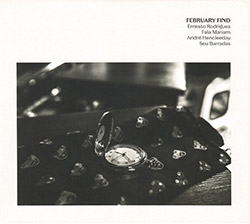




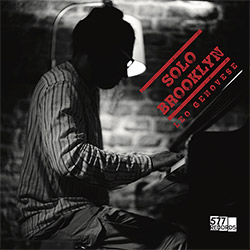
![Coley, Byron / Mats Gustafsson / Thurston Moore: Now Jazz Now: 100 Essential Free Jazz & Improvisation Recordings (1960-80) [BOOK]](https://www.teuthida.com/productImages/misc4/36932.jpg)
![Evans, Peter / Being & Becoming: Ars Ludricra [VINYL + DOWNLOAD]](https://www.teuthida.com/productImages/misc4/37026.jpg)
![HobbyHouse (Mia Dyberg / Axel Filip): HobbyHouse [CD + DOWNLOAD]](https://www.teuthida.com/productImages/misc4/36944.jpg)
![Mines, Kelsey / Erin Rogers: Scratching At The Surface [CD + DOWNLOAD]](https://www.teuthida.com/productImages/misc4/36945.jpg)
![Nebbia, Camila (feat/ Marilyn Crispell / Lesley Mok): A Reflection Distorts Over Water [CD + DOWNLOAD]](https://www.teuthida.com/productImages/misc4/36946.jpg)
![Vanheerentals, Adia: Taking Place [CD + DOWNLOAD]](https://www.teuthida.com/productImages/misc4/36947.jpg)
![Mines, Kelsey / Vinny Golia: Collusion and Collaboration [CD + DOWNLOAD]](https://www.teuthida.com/productImages/misc4/36948.jpg)
![Parkins, Zeena: Lament For The Maker [CD + DOWNLOAD]](https://www.teuthida.com/productImages/misc4/36949.jpg)
![Evans, Peter / Mike Pride : A Window, Basically [CD + DOWNLOAD]](https://www.teuthida.com/productImages/misc4/36950.jpg)


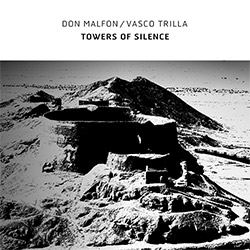
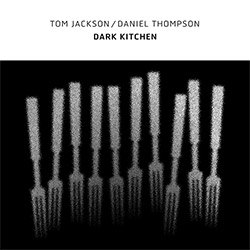
![Frey, Jurg : Composer, Alone [3 CDs]](https://www.teuthida.com/productImages/misc4/36927.jpg)
![Belorukov, Ilia / Alex Riva: Wrestling For Futility [CASSETTE w/DOWNLOAD]](https://www.teuthida.com/productImages/misc4/36994.jpg)
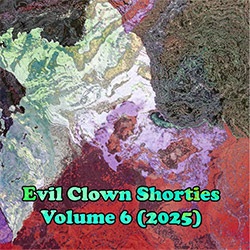
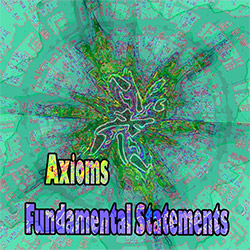







![Agnel, Sophie: Learning [VINYL]](https://www.teuthida.com/productImages/misc4/36841.jpg)
![Monaco, Amanda (w/ Michael Attias / Sean Conly / Satoshi Takeishi) : Deathblow [VINYL+ DOWNLOAD]](https://www.teuthida.com/productImages/misc4/36956.jpg)

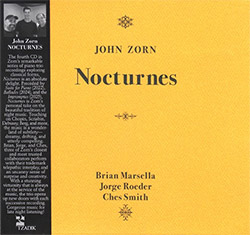
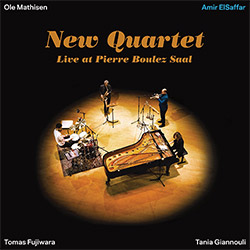
![ElSaffar, Amir / New Quartet : Live at Pierre Boulez Saal [VINYL]](https://www.teuthida.com/productImages/misc4/36830.jpg)

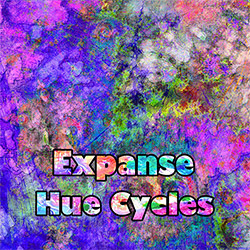
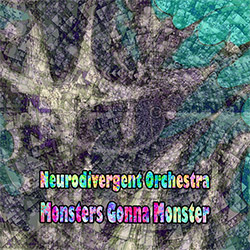
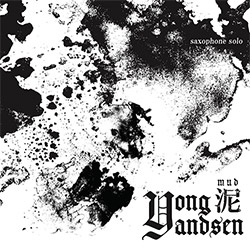

![Musicworks Magazine: #152 Fall 25 [MAGAZINE + CD]](https://www.teuthida.com/productImages/misc4/37004.jpg)
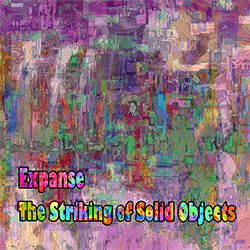




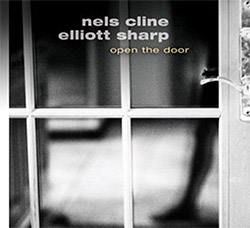
![[ahmed] (Thomas / Grip / Gerbal / Wright): Sama](https://www.teuthida.com/productImages/misc4/36976.jpg)

![Genthon, Anouck / Lionel Marchetti: Suite Blanche [2 CDs]](https://www.teuthida.com/productImages/misc4/36642.jpg)
![Toeplitz, Kasper T.: Erosions Programmees [CD + BOOKLET]](https://www.teuthida.com/productImages/misc4/36639.jpg)
![Gate, The : Almost Live [CASSETTE + MAGAZINE]](https://www.teuthida.com/productImages/misc4/36836.jpg)






![A Magic Whistle: The Solar Cell [VINYL]](https://www.teuthida.com/productImages/misc4/36658.jpg)

![McGee, Hal: Columbus Expedition [Cassette w/ Download]](https://www.teuthida.com/productImages/misc4/36650.jpg)


![Jaeger, Kassel: Fernweh [VINYL 2 LPs]](https://www.teuthida.com/productImages/misc4/36541.jpg)





![+DOG+: The Light Of Our Lives [2 CDs]](https://www.teuthida.com/productImages/misc4/36009.jpg)


![Eternities: Rides Again [CASSETTE]](https://www.teuthida.com/productImages/misc4/36247.jpg)

![Lopez, Francisco: Untitled (2021-2022) [2 CDs]](https://www.teuthida.com/productImages/misc4/36438.jpg)




![Frey, Jurg with ensemble]h[iatus: Je Laisse A La Nuit Son Poids D](https://www.teuthida.com/productImages/misc4/36988.jpg)




![Pisaro-Liu, Michael: Within (2) / Appearance (2) [2 CDs]](https://www.teuthida.com/productImages/misc4/36831.jpg)










![Musicworks Magazine: #151 Summer 25 [MAGAZINE + CD]](https://www.teuthida.com/productImages/misc4/36559.jpg)

![Brown, Dan / Dan Reynolds: Live At The Grange Hall [unauthorized][CASSETTE]](https://www.teuthida.com/productImages/misc4/36245.jpg)


![Zorn, John: The Song of Songs [CD + CD BOOK]](https://www.teuthida.com/productImages/misc4/36923.jpg)

![Coultrain: Mundus [COLORED VINYL]](https://www.teuthida.com/productImages/misc4/33056.jpg)
![Hprizm: Signs Remixed [COLORED VINYL]](https://www.teuthida.com/productImages/misc4/30635.jpg)
![Halls Of the Machine: All Tribal Dignitaries [CASSETTE w/ DOWNLOAD]](https://www.teuthida.com/productImages/misc4/36134.jpg)



![Koenjihyakkei: Live at Club Goodman [2 CDs]](https://www.teuthida.com/productImages/misc4/36111.jpg)

![Sorry For Laughing (G. Whitlow / M. Bates / Dave-Id / E. Ka-Spel): Rain Flowers [2 CDS]](https://www.teuthida.com/productImages/misc4/35985.jpg)

![Rolando, Tommaso / Andy Moor : Biscotti [CASSETTE w/ DOWNLOADS]](https://www.teuthida.com/productImages/misc4/36106.jpg)


![Electric Bird Noise / Derek Roddy: 8-10-22 [CD EP]](https://www.teuthida.com/productImages/misc4/35970.jpg)








![Elephant9 : Mythical River [VINYL]](https://www.teuthida.com/productImages/misc4/34624.jpg)



![Elephant9 with Terje Rypdal: Catching Fire [VINYL 2 LPs]](https://www.teuthida.com/productImages/misc4/35355.jpg)
![Coley, Byron: Dating Tips for Touring Bands [VINYL]](https://www.teuthida.com/productImages/misc4/17906.jpg)

![Lost Kisses: My Life is Sad & Funny [DVD]](https://www.teuthida.com/productImages/misc4/lostKissesDVD.jpg)